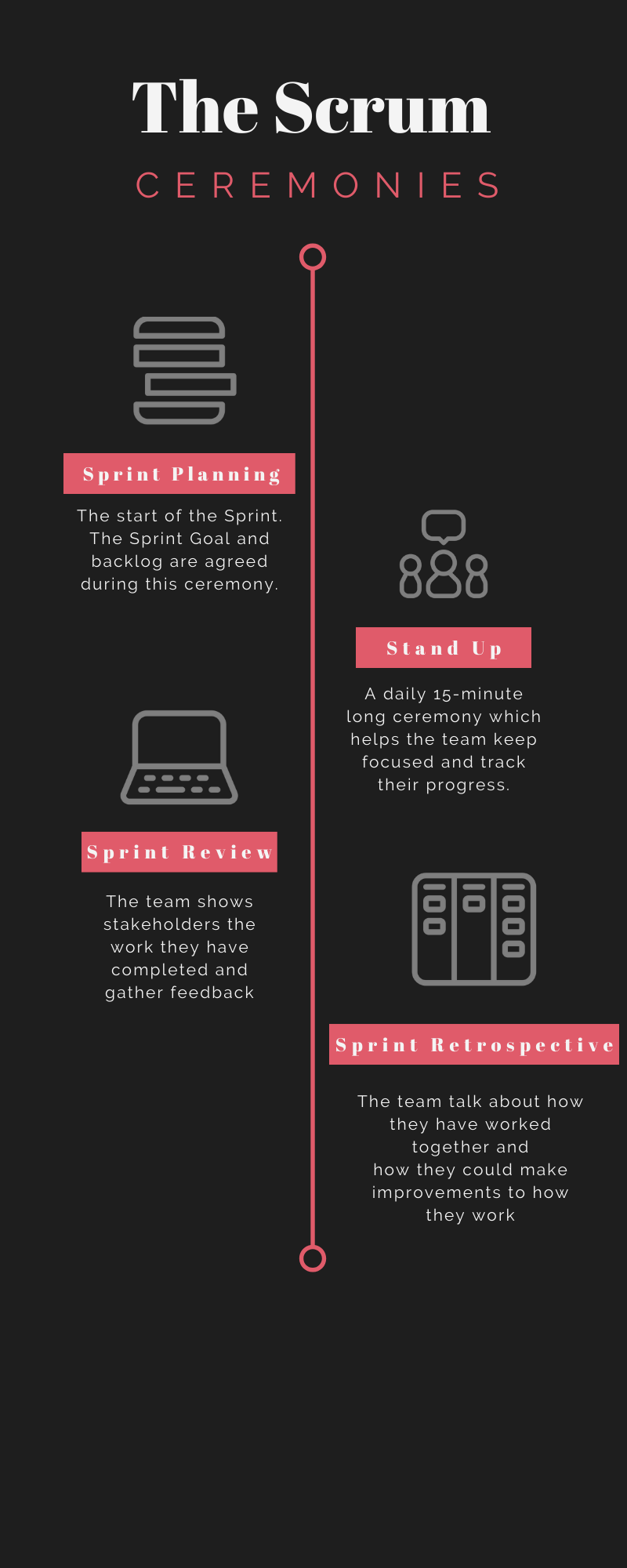ANSWER
What is a Sprint?
A sprint is a short, defined period of time that a team uses to organize their work cycles - it is the key feature of Scrum (the most popular Agile framework) and is used by thousands of teams around the world.
Sprints last between one and four weeks, but two week long sprints are the most common. Throughout this article I’m going to refer to two week long sprints for the sake of simplicity.
Sprints start with defining the goal and scope. This shouldn’t change during the sprint, once it has been defined. The team then go about completing the tasks of the sprint. By the end of the sprint the aim is for the team to have completed everything to achieve their goal.
Why do we use Sprints?

Sprints give the team a clear focus and less distractions, creating an efficient work environment. The way they achieve this is through a sprint goal and sprint backlog which provide an agreement with all stakeholders, of the work that is going to be completed and its prioritization. Any new requirements need to wait until the next sprint so the team knows it isn’t going to be disrupted from their work.
Using Sprints also focuses teams on what needs to be done in the near term. This is easier than trying to plan for an entire project that could last for months or even years. Sprints allow us to have a high-level plan for the whole project and a detailed plan just for the next two weeks which is more efficient and accurate than a long project plan.
In addition, it is easier to remain focused when the team have a goal that they want to complete that Sprint, it is hard to stay motivated for months at a time, so Sprints provide checkpoints and smaller goals that help a team keep track of their progress and maintain focused on their product or project.
What happens during a Sprint?
There are several Scrum ceremonies that happen each sprint. Each sprint starts with a Sprint Planning ceremony where the Sprint Goal and backlog are agreed. Then every day of the Sprint a 15-minute long Stand Up helps the team keep track of their progress. At the end of the Sprint there are two more ceremonies. The Sprint Review shows stakeholders the work the team has completed and allows them to give feedback. At the end of all of these ceremonies team has a Sprint Retrospective where they talk about how they have worked together and how they could make improvements to how they work for following sprints.
What do you achieve during a Sprint?
Each Sprint should result in a “Potentially shippable product”. Traditionally many projects would have different phases - design, build, test and release. Scrum instead tries to get teams to design, build and test smaller features every Sprint. So rather than just having a design complete at the end of a sprint, a smaller feature should be designed, built and tested all within one Sprint.
Do you have to work in Sprints to be Agile?
While Scrum is a very common methodology you don’t have to work in Sprints to be Agile. A key thing about Agile teams is that they release work frequently, Sprints help facilitate this but there are definitely other ways to do so (Kanban is a great example, but that is a whole other topic).
Further information
The Official Scrum Guide